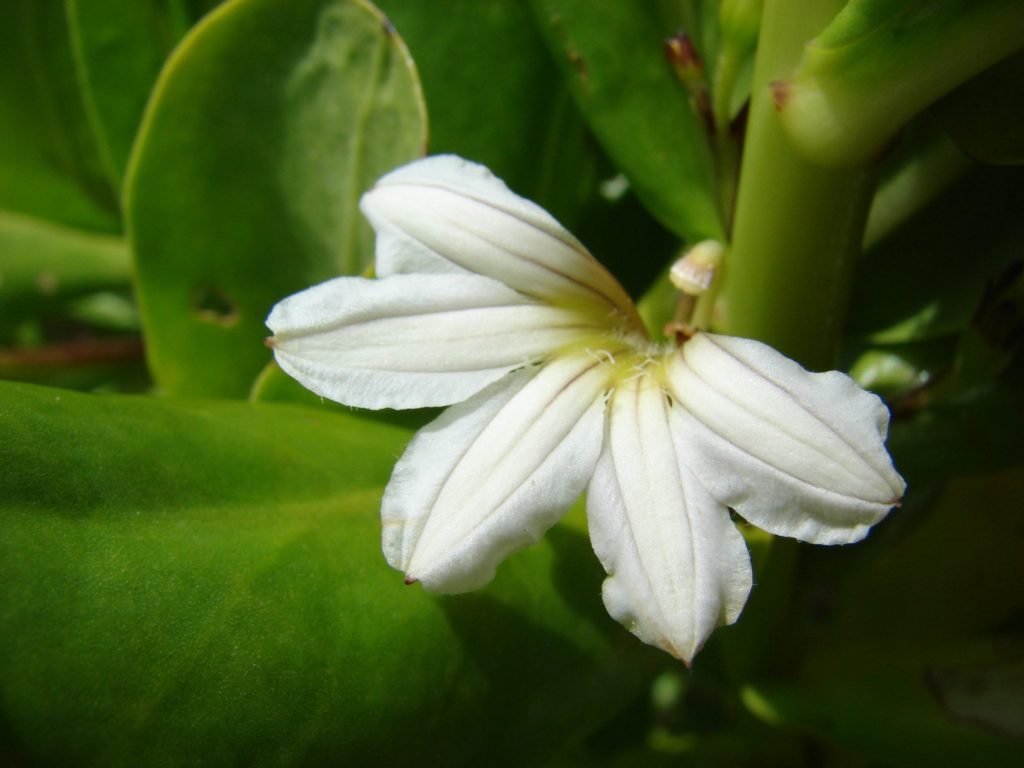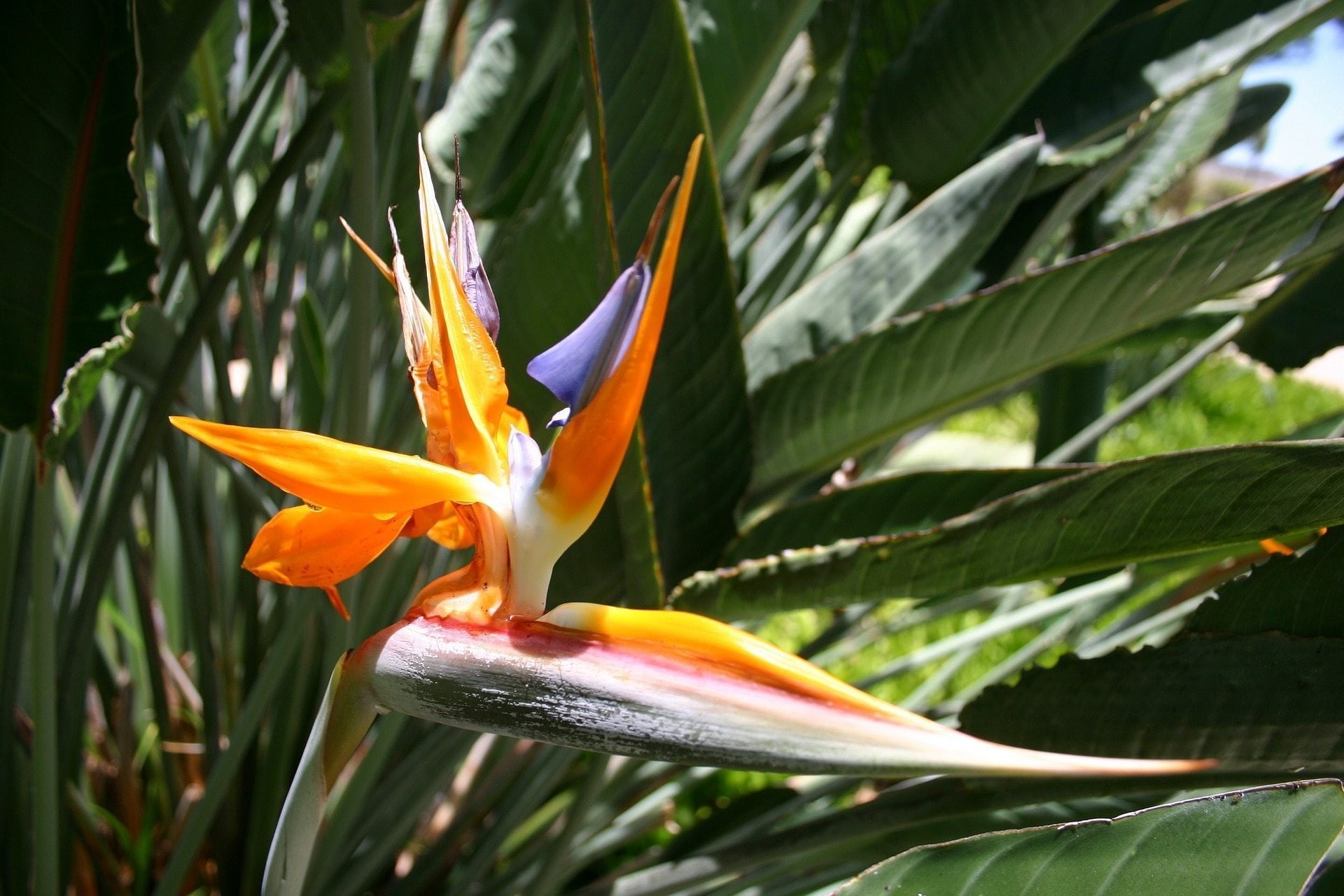Hawaiian plants are some of the most interesting and exotic in the world. In fact, a large majority of Hawaiian plants aren’t found anywhere else on the planet. Unfortunately, some of these beautiful plants and flowers are facing extinction.
Hiking, island hopping, or just relaxing are great activities when beautiful sights are abounding. Do your part to help preserve appreciation for Hawaiian flowers and plants while visiting! In the meantime, check out a few of our favorites below!
Haleakalā Silversword Plant
1. The Haleakalā silversword plant is so rare that it not only just grows in Hawaii, it also only grows in one spot in Hawaii. That spot is Haleakalā National Park. The Hawaiian plant’s population is declining though, particularly in the last two decades.
The five-foot tall plant only flowers towards the end of its life, and it can live as long as 90 years. When it does bloom, it produces as many as 600 flowers. Currently, there are only about 30,000 of these Hawaiian plants left.
Uluhe fern
2. The Uluhe fern is another indigenous Hawaiian plant, and this one grows on the Big Island. The hearty and resilient little fern can grow up to 20 feet tall just about anywhere. They prefer to grow around volcanoes interestingly enough.
The odd fun fact about this plant is its medicinal use. Despite its alien-looking curled shoot, which comes up from the ground like a tentacle, this plant has ancient origins. Hawaiian residents long ago would use soaked ferns as a remedy for constipation.
Ti
3. Ti, pronounced “tee” and not “tie,” is a Hawaiian plant with a long history. Thought it may look uninteresting, ancient Hawaiians used Ti for a few different purposes. This sturdy plant was used for making roofs for huts.
It even transformed into ropes, shoes, and clothing. It’s edible, and can be utilized for baking or pureed. You can even ferment it to create a sort of liquor. The Hawaiians didn’t stop there, though. They also used the large sturdy leaves as dinnerware.
Pili Grass
4. Pili grass is not your ordinary high grass, due to the unusual seeds. When exposed to water, the seeds, attached to a long awn, will begin to move and shift on their own. This is where the seeds get their botanical name “Heteropogon contortus,”.
This name is due to the way they contort. These movements help the seeds to burrow into the soil. This can cause problems though. Livestock, or pets with thick fur, can be injured after carrying home some pili in their fur.
The seeds become wet and then the pili actually burrow into their skin. Hikers have also experienced this, especially if the seeds get stuck in wet, thick clothing (such as hiking socks). It’s a less common occurrence for humans luckily.
Moa Fern
5. The Moa fern is found most in Hawaii. These Hawaiian plants exist in a few other tropical climates around the world. It’s considered a primitive plant, due to its early origination. The fern features spores all over its spiky stems, which were used as a powder by ancient Hawaiians.
They used it underneath their loincloths to prevent chafing. Other uses include gathering the stems and using them as a broom, and children often used them in games.
Ilima Flower
6. The ‘Ilima flower is the official Oahu flower. Ilima is also the official flower for making leis, despite many leis today consisting of Hibiscus flowers. However, the flower is incredibly small – only about an inch in diameter at most.
This means skilled craftsmen must be very careful with the tiny delicate flowers to make an official lei. How many go into one lei? About 1,000! The flower also had medicinal purposes in ancient times as well, as a fiber source.
Iliau
7. Hawaiian plants are often unusual-looking. Iliau bears a particular resemblance to the truffula tree created by Dr. Seuss. The plant, though, is not actually a tree. It just happens to grow up to 15 feet tall, with a long, trunk-like stalk.
The plant produces a multitude of yellow flowers. Most of the year though, it is just a bushy green orb atop a slender singular stalk. The plant is endemic to Kaua’i and also related to the silverswords that were first on our list.
Naupaka Flower

8. Naupaka flowers have an interesting story. The flowers appear on a low shrub, surrounded by waxy leaves. The flowers are small, white, and slightly purple. Naupaka have all the petals on one side of the flower, leaving the other half petal-less.
Legend says two young lovers were forbidden to marry long ago. So one fled to the Hawaiian mountains, and one fled to the sea, where they both died. After dying, Naupaka began growing at both the sea and the mountains. The flowers are missing their other half, as a sign of the couple’s eternal love.
Want to see these plants up close? Book our Nature and You tour through the Hawaiian Rainforest to a 150-foot waterfall today!










